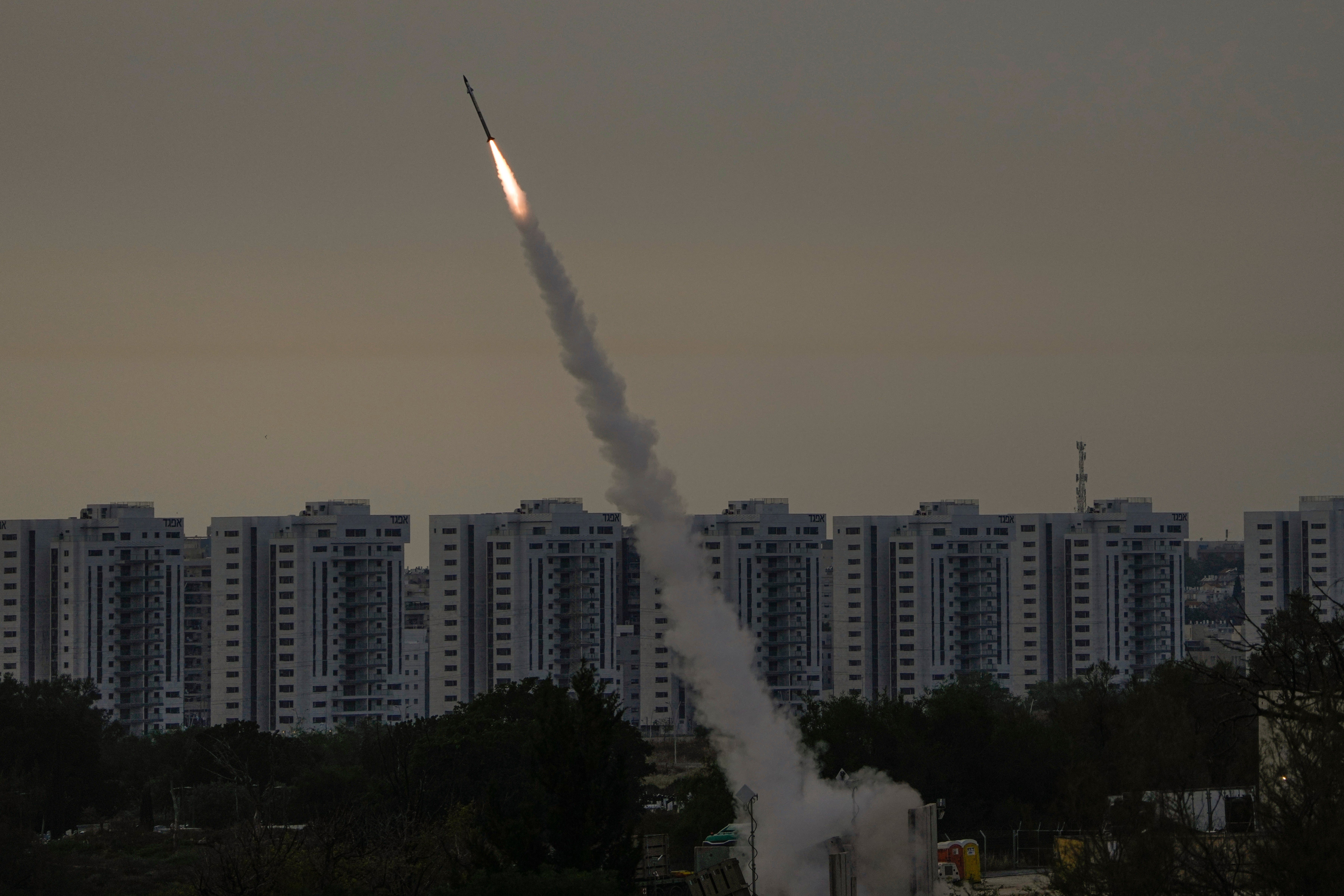To ‘take the win’, Israel must now use its head and its heart
Editorial: After Tehran’s unprecedented missile attack, Benjamin Netanyahu is coming under intense pressure to retaliate – but he owes it to the allies who rallied to his country’s defence to weigh their arguments more carefully than he has done at any point so far during his war on Hamas

David Cameron made an eloquent case for Israel to show restraint as it considers how to respond to Saturday’s drone and missile attack by Iran. In a round of broadcast interviews, the foreign secretary urged Israel to be “smart as well as tough” by refraining from escalating this dangerous conflict, and to “think with head as well as heart”.
Lord Cameron described the state of play as a “double defeat” for Tehran: the attack was repelled, and the rest of the world could see what a “malign influence” Iran is in the region. He echoed Joe Biden in appealing to Israel to “take the win”.
Even his critics acknowledge that Lord Cameron is a good communicator. The former prime minister can encapsulate in a few words an argument it would take other politicians three sentences to spell out. At Westminster, there is predictable gossip that Lord Cameron is upstaging Rishi Sunak, who looks a lot less comfortable when giving his almost-daily pooled TV interview as the “long campaign” for the general election continues.
Lord Cameron is certainly setting the bar high for whoever succeeds him as foreign secretary – as things stand, that is likely to be David Lammy, his Labour shadow.
Lord Cameron is aiding, not undermining, the prime minister. Having an experienced pair of hands at the Foreign Office when the world is so unstable is good for the UK, and allows Mr Sunak to focus mainly on the domestic agenda and the election. Unlike two other members of the “former PMs” club, Boris Johnson and Liz Truss, Lord Cameron has no intention of trying to get his old job back.
In the Commons today, Mr Sunak also made a powerful case for all sides to “show restraint” – even if, when he spoke eight hours later, he repeated Mr Cameron’s words. It is welcome that the prime minister’s three-point plan for the Middle East included not only ensuring Israel’s security but investing more deeply in a two-state solution and bringing the conflict in Gaza to an end.
The UK government has a coherent explanation for the role RAF jets played in helping to ensure that Iran’s attack did not succeed. If its missiles and drones had caused a huge number of casualties, then Israel’s retaliation might already have put the two countries on the slippery slope to all-out war. It is undoubtedly in the British national interest to assist in preventing a regional conflagration.
The RAF’s involvement does not mean that the UK would join Israel in any retaliation it undertook against Iran – and it is right that it should not. But Mr Sunak should be clearer about how the UK might engage in the Middle East. There is a strong argument for parliament to approve any intervention – if necessary, retrospectively.
There is also a case, as the Labour opposition argues, for further sanctions against Iran, and for the UK to proscribe Iran’s Islamic Revolutionary Guard Corps as a terrorist group. Mr Sunak suggested that the UK will act in concert with its G7 partners on these matters.
The worrying turn of events at the weekend has unfortunately switched the spotlight away from the humanitarian catastrophe in Gaza. Tensions between Israel and its traditional allies, such as the US and the UK, over Benjamin Netanyahu’s indefensible tactics in Gaza have been overtaken by the urgent need to defend Israel from a more threatening enemy than Hamas.
Yet Gaza must not be forgotten. It might look odd – for now, at least – to talk about banning arms sales to Israel when the country has just come under an unprecedented attack. Yet recent events do not absolve Israel’s allies from holding it to account for the tragedy still unfolding in Gaza. The UK government should publish the legal advice on which its decision to continue arms exports to Israel was based.
However articulate and persuasive the calls for restraint by London and Washington, Mr Netanyahu is under intense pressure, from far-right members of the coalition that maintains his unsteady grip on power, to retaliate with a show of immense force.
At the very least, the Israeli prime minister owes it to those who rallied to Israel’s defence at the weekend to weigh their arguments carefully. If he acts on their advice, he will maintain the international coalition he has reassembled. If he uses his head as well as his heart, he will “take the win”.






Join our commenting forum
Join thought-provoking conversations, follow other Independent readers and see their replies
Comments